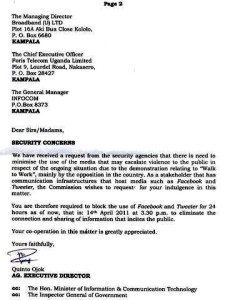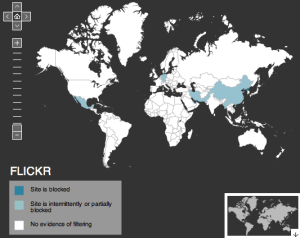Earlier this evening I saw that the Associated Press and others are reporting that the US military has shut down wifi service, along with access to Facebook and Twitter, at Guantanamo.
According to Army Lt. Col. Samuel House, who spoke with the AP, the shutdown was a response to a May 6 press release from Anonymous, titled “We are closing Guantanamo Bay for good.” The release lists the phone numbers of the White House, US Southern Command, and the Department of Defense, links to a Change.org petition to close Guantanamo, and urges readers to “join global actions on the ground and hacktivist protests as well as twitterstorms, email bombs, and fax bombs, in 3 days of nonstop action.”
Unlike in earlier operations, where Anonymous has threatened to “lay waste to…servers” in response to human rights violations in Bahrain or to prevent the State of the Union from being broadcast online, the #OpGTMO press release doesn’t appear to contain any specific hacking-related threats. In fact, I can’t find anything “threatening” at all about this entirely legitimate call to legal civic action.
I’m left wondering: why, exactly, was shutting down wifi and access to social media an appropriate response? (And furthermore, how would these measures—especially blocking Facebook and Twitter—even make a difference, were Anonymous or others to decide to launch a DDoS attack against US military servers?) So far the best commentary I can find on this issue comes from Brittany Hillen at Slashgear:
It is worth noting the press release doesn’t say anything about hacking or cyberattacking the network, instead urging the public to bombard the powers that be with denouncements of the prison’s conditions, actions, and continued existence. As such, it has been pointed out on the Operation Guantanamo’s Twitter account that the base has taken itself offline, with the hacking collective not having to do anything, seemingly fulfilling the purpose it was assumed Anonymous sought to achieve.
There’s no word on when the network will be available again.
Ahem.
(Relatedly: does anyone know what the non-military Internet access options are for military service members on the island? General Internet access in Cuba is fairly dismal, but I’m wondering what other options, if any, exist for the average sailor/Marine.)


